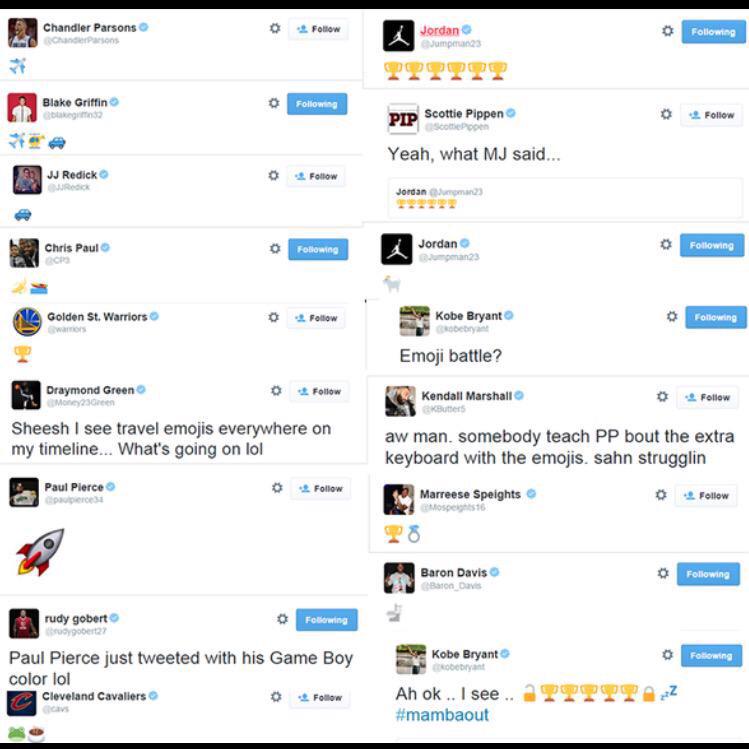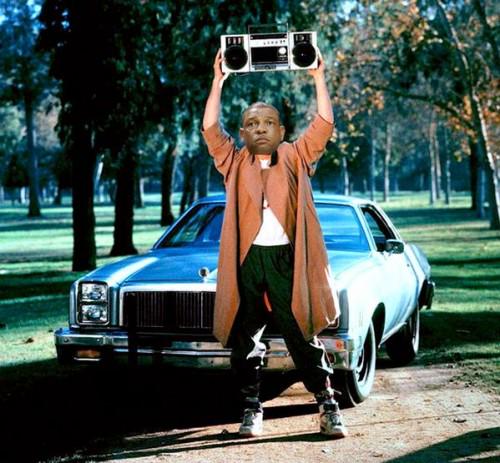A short history of verbal agreements in the NBA
Thu Jul 09, 2015 11:36 am
The current situation with DeAndre Jordan has prompted this piece on verbal agreements, a quick but nevertheless interesting read. Something that it notes that I must admit I didn't really take into account in the other thread is the code of honour between NBA clubs, when it comes to these matters.
With that in mind, I was probably too quick to absolve the Clippers of any blame in the situation. The best you could say about it is that it's a bit on the nose. At the same time though, I think responsibility ultimately rests with the person who would be reneging on their verbal agreement, that being Jordan himself. Sure, the Clippers may be breaking an unwritten rule, but Jordan's the one who is giving them the time of day and would be the one who breaks his word. You can say it's dirty pool by the Clippers, but Jordan could very easily say "Sorry, no, it's far too late for any of that". He's apparently not saying that, and that's on him.
That last fact makes it a rather interesting situation to look back on. No doubt, Boozer did not act in good faith there, and any criticism of the way he and Pelinka handled the situation is completely justified. But it is interesting to note that the Cavaliers were technically preparing to violate the rules there. Sure, they got screwed by Boozer, but they were looking to screw the whole system. It doesn't justify what Boozer did, of course, but it does make Cleveland slightly less sympathetic, in my opinion. After all, they were looking to be sneaky, too.
I'd forgotten all about that. Then again, in the years that have followed, it's easy to forget that Turkoglu was at one point a highly sought after free agent.
These days, wars are fought with emojis. Back then, things got a little more extreme.
That they spring so quickly to mind for so many demonstrates how indelibly this sort of business skullduggery etches itself into the sport's collective memory. As former Nets executive Bobby Marks noted via Twitter, the Clippers' involvement in rushing to re-recruit Jordan at the last minute, violates one of the NBA's "unwritten rules."
With that in mind, I was probably too quick to absolve the Clippers of any blame in the situation. The best you could say about it is that it's a bit on the nose. At the same time though, I think responsibility ultimately rests with the person who would be reneging on their verbal agreement, that being Jordan himself. Sure, the Clippers may be breaking an unwritten rule, but Jordan's the one who is giving them the time of day and would be the one who breaks his word. You can say it's dirty pool by the Clippers, but Jordan could very easily say "Sorry, no, it's far too late for any of that". He's apparently not saying that, and that's on him.
In the summer of 2004, Cleveland had an option to keep forward Carlos Boozer for $700,000, a modest salary for 2004-05 given Boozer's 15.5 points and 11.4 rebounds during LeBron James' rookie season. Instead, with what was reported to be a handshake deal with Boozer and agent Rob Pelinka on a six-year, $41 million package, the Cavaliers released him from that one-year contract. Instead of re-upping, though, Boozer signed a six-year, $68 million deal with Utah.
Cleveland rightfully felt burned, even though technically their wink-wink arrangement would have violated NBA salary-cap rules.
That last fact makes it a rather interesting situation to look back on. No doubt, Boozer did not act in good faith there, and any criticism of the way he and Pelinka handled the situation is completely justified. But it is interesting to note that the Cavaliers were technically preparing to violate the rules there. Sure, they got screwed by Boozer, but they were looking to screw the whole system. It doesn't justify what Boozer did, of course, but it does make Cleveland slightly less sympathetic, in my opinion. After all, they were looking to be sneaky, too.
Hedo Turkoglu was a hot commodity as free agency opened in July 2009. Early in the process, the 6-foot-10 forward went to dinner with Portland coach Nate McMillan and GM Kevin Pritchard, telling them, "I want to be a Blazer." Then he abruptly broke off further talks and signed a $53 million sign-and-trade deal with Toronto.
I'd forgotten all about that. Then again, in the years that have followed, it's easy to forget that Turkoglu was at one point a highly sought after free agent.
The NBA was in full scramble mode coming out of a lockout that cut the schedule to 50 games. So it was January, and when an indecisive McDyess -- in Denver to meet with the Nuggets -- reached out to teammate Jason Kidd by phone, the Suns sprang into action. Kidd, Rex Chapman and George McCloud grabbed a flight to Denver, then pulled up to McNichols Arena in a rented limousine. In a snowstorm.
That's as far as they got, too. Dan Issel, Denver's coach and GM, knew the Suns were coming for McDyess, so he instructed security and ticket vendors -- the Colorado Avalanche were playing at the arena that night -- not to let Kidd, Chapman or McCloud into the building.
McDyess wound up signing with the Nuggets, keeping his verbal commitment.
These days, wars are fought with emojis. Back then, things got a little more extreme.
Re: A short history of verbal agreements in the NBA
Thu Jul 09, 2015 12:08 pm
This is getting way out of hand.

and I like it.

MJ Wins

and I like it.

MJ Wins
Re: A short history of verbal agreements in the NBA
Thu Jul 09, 2015 1:26 pm
The McDyess story I always loved. He's admitted to crying over it.
The Dan Issel era in Denver was kinda amazing in retrospect.
The Dan Issel era in Denver was kinda amazing in retrospect.
Re: A short history of verbal agreements in the NBA
Thu Jul 09, 2015 2:08 pm
The situation with McDyess has also been mentioned here on Ball Don't Lie. Eric Freeman makes a fair point:
Jokes aside — here's a brief break to push the hundreds of amazing jokes aside — the McDyess situation serves a reminder that players have had last-minute changes of heart before and that teams have pushed their available resources to the limit to make sure they get what they want. If the ongoing Jordan drama appears different, it could be because we are now in a culture that ensures we will get regular updates on the whole ordeal as it happens. When Jason Kidd got locked out of the Pepsi Center, no one was available to tweet that he had forgotten to pack a winter coat.
Re: A short history of verbal agreements in the NBA
Thu Jul 09, 2015 3:03 pm
Now that Jordan is back with his Clippers teammates, I wonder what he has to say and what the team did in order to reverse his decision. This will be talked for a long time.
I am thinking people will enjoy and boo Hack-a-Jordan tactics more now.
I am thinking people will enjoy and boo Hack-a-Jordan tactics more now.
Re: A short history of verbal agreements in the NBA
Thu Jul 09, 2015 5:32 pm
Supposedly he felt uneasy about his decision to leave, and reached out to Doc Rivers. That probably made their job a lot easier.
Re: A short history of verbal agreements in the NBA
Thu Jul 09, 2015 7:15 pm

